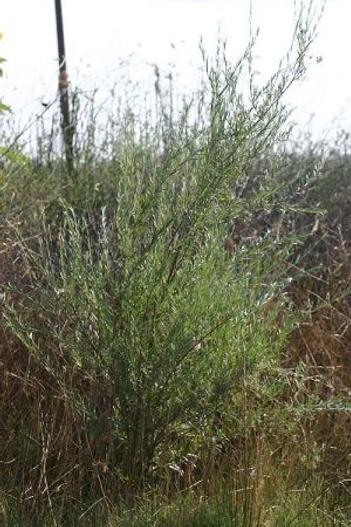Northwest Sandbar Willow
(Salix sessilifolia)
Northwest Sandbar Willow (Salix sessilifolia)
/
/

Stephen Laymon, Bureau of Land Management
Public domain
Image By:
Stephen Laymon, Bureau of Land Management
Recorded By:
Copyright:
Public domain
Copyright Notice:
Photo by: Stephen Laymon, Bureau of Land Management | License Type: Public domain | License URL: https://creativecommons.org/public-domain/ | Uploader: Stickpen | Publisher: Wikipedia Commons

Estimated Native Range
Summary
Salix sessilifolia, commonly known as Northwest Sandbar Willow, is a deciduous shrub native to riparian zones, including riverbanks, floodplains, and sandbars along the west coast of North America, from British Columbia through Washington to Oregon. It typically reaches 10-16 feet in height and can form dense colonial thickets. The leaves are narrow, lanceolate, and can be up to 5 inches long, with finely serrated margins and a silky texture due to fine hairs. The plant is dioecious, with male and female flowers on separate plants. The flowers are arranged in catkins, with male catkins being stout and up to 2 inches long, while female catkins are longer, more slender, and develop into fruit capsules that release cottony seeds.
Northwest Sandbar Willow is valued for its ability to stabilize soil and prevent erosion in its native habitat. It is often used in restoration projects and naturalized plantings. The plant thrives in full sun to part shade and prefers moist to wet soil conditions, making it suitable for planting in bioswales and near water features. It is relatively low-maintenance but can be susceptible to willow beetle and fungal diseases. Pruning may be necessary to maintain desired shape and size or to remove damaged branches.CC BY-SA 4.0
Northwest Sandbar Willow is valued for its ability to stabilize soil and prevent erosion in its native habitat. It is often used in restoration projects and naturalized plantings. The plant thrives in full sun to part shade and prefers moist to wet soil conditions, making it suitable for planting in bioswales and near water features. It is relatively low-maintenance but can be susceptible to willow beetle and fungal diseases. Pruning may be necessary to maintain desired shape and size or to remove damaged branches.CC BY-SA 4.0
Plant Description
- Plant Type: Shrub, Tree
- Height: 1-3 feet
- Width: 1-3 feet
- Growth Rate: Rapid
- Flower Color: N/A
- Flowering Season: Spring, Summer
- Leaf Retention: Deciduous
Growth Requirements
- Sun: Full Sun, Part Shade
- Water: Medium
- Drainage: Fast, Medium
Common Uses
Bank Stabilization, Erosion Control, Low Maintenance, Water Garden
Natural Habitat
Native to riparian zones along the west coast of North America from British Columbia through Washington to Oregon
Other Names
Common Names: Dwarf Willow, Northwest Willow, Sandbar Willow, Sessile-Leaved Sandbar Willow, Longleaf Willow, River Willow, Sessile-Leaved Willow, Soft-Leaved Willow
Scientific Names: , Salix sessilifolia, Salix exigua var. sessilifolia, Salix fluviatilis f. villosa, Salix fluviatilis var. sessilifolia, Salix longifolia var. sessilifolia, Salix macrostachya, Salix macrostachya var. cusickii, Salix macrostachys, Salix macrostachys var. cusickii
GBIF Accepted Name: